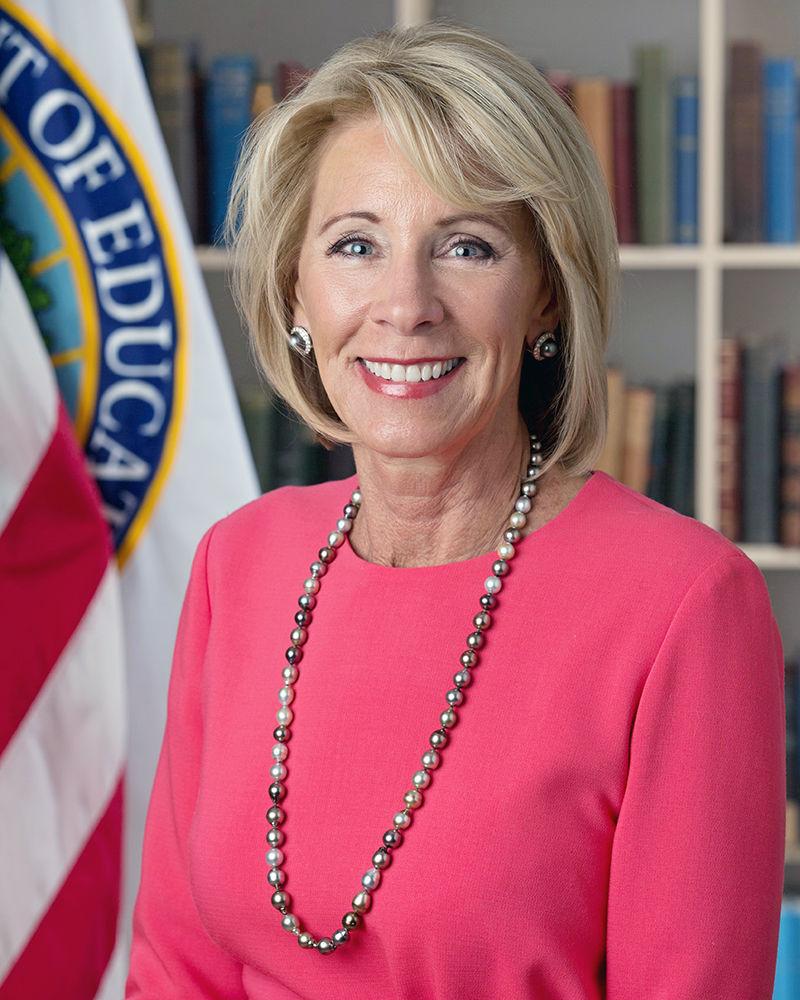Secretary of Education Betsy DeVos announced on Sept. 22 that the Education Department is rescinding the 2011 Obama Administration guidance which states how schools should handle sexual assault cases under the Title IX law.
DeVos says her concern about the 2011 guidance includes the neglect of proper due process to the accused. The Education Department has released an interim guidance as of Sept. 22 that gives colleges the ability to set their own standards for evidence, practice informal resolutions to cases and establish their own appeals process.
“Nothing about Title IX has changed,” said Thomas Hardiman, the director of the Office of Student Conduct at NC State. “The Department of Education’s office for civil rights released a Dear Colleague letter and additional question and answer guidance.”
The Dear Colleague letter released in 2011 contained a set of guidelines that clarified what schools’ responsibilities were under the law to enforce Title IX, especially relating to sexual assault.
Hardiman said this Dear Colleague letter rescinded the 2011 Dear Colleague letter as well as the 2014 question and answer guidance. The Sept. 22 guidance provides some interim answers for what universities and schools should do during the rulemaking and public comment process. Hardiman also said the process NC State goes through for sexual assault cases will currently remain the same.
“There’s nothing substantive [that Student Conduct is] looking to change currently,” Hardiman said. “Obviously, there had been a shift at the institution in which the investigatory piece has moved out of this office and moved over to the folks at the Office of Institutional Equity and Diversity.”
Lisa LaBarbera-Mascote, the director of the Women’s Center at NC State, discussed the many difficulties survivors of sexual assault may have due to the new interim guidance.
“The great thing about the 2011 letter was it said directly to survivors, ‘we’re here, we believe you and you have rights,’” LaBarbera-Mascote said. “I think very much that the recension could have a chilling effect on survivors. It’s already difficult to come forward; it’s already difficult to feel like you’re going to be believed, to have to tell your story to other people. The letter could have an impact in pulling folks back from being willing to reach out.”
LaBarbera-Mascote said she’s concerned about the number of people who will report sexual assault after the release of DeVos’ guidance, which in contrast to the 2011 Dear Colleague letter, focuses heavily on the students who are accused.
“When you’re focusing a lot of the accused in letters like this it might make somebody else doubt or question whether they’re going to be believed,” LaBarbera-Mascote said.
Robinette Kelley, the associate vice chancellor for equal opportunity and deputy Title IX coordinator, explained NC State’s response to the interim period.
“Right now, the response for NC State is to learn as much as we can about [the Office for Civil Right’s] interpretation of their letter that they put out,” Kelley said. “For right now, we are not making any changes to how we respond [to sexual assault claims]. We’re not changing our standards of evidence, from preponderance to clear and convincing. If something happens off campus, we’re addressing it.”
Kelley also discussed an important resource the Office for Institutional Equity and Diversity is working on to educate students and faculty about Title IX and sexual assault.
“We’re getting ready to implement our online training program,” Kelley said. “It not only talks about Title IX and some of the sexual violence issues but also talks about bystanders because we’re in this all together. It talks about bystander education and risk reduction, healthy relationships and things like that.”
Hardiman, LaBarbera-Mascote and Kelley all discussed the importance of the resources NC State offers for students who may need them. The Women’s Center provides direct advocacy services for students, and Student Conduct and the Office for Institutional Equity and Diversity work together to ensure students have the ability to safely report sexual assault.
The main office for the Office for Institutional Equity and Diversity is located on the second floor of Winslow Hall on main campus.








